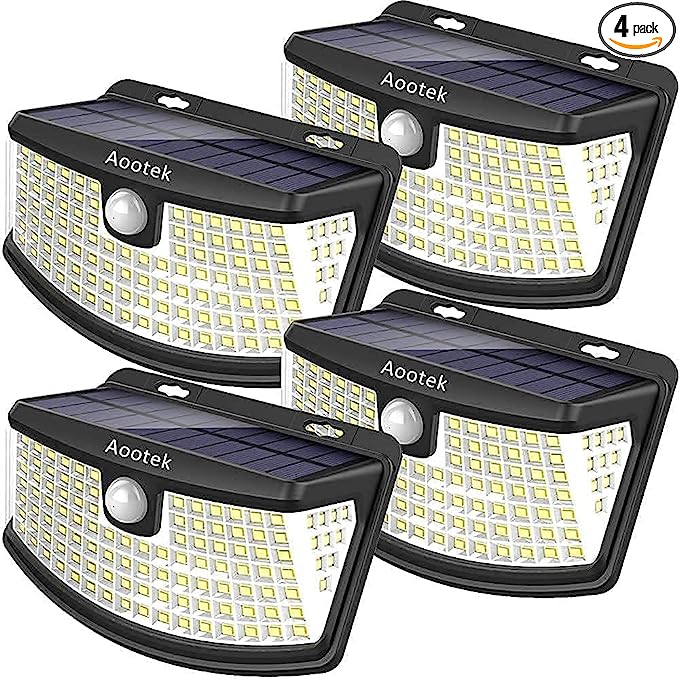The Best Smart Devices for Seniors
July 25, 2023
The Best Smart Devices for Seniors
It seems like anything we need today, we can find via an app on our smartphone or through a smart device plugged into an outlet in our home. Thanks to technology, life is a bit easier, whether it is finding out if there’s traffic during our road trip or seeing who is ringing our doorbell even when we are on vacation miles away. Technology can be helpful as we age too, even for those who wouldn’t categorize themselves as tech-savvy. The right smart devices can make the retirement years even better and can make the challenges that come with aging seem easier to navigate.
Fortunately, there is a lot we can all do to make aging in place more enjoyable and safe. In no particular order, here’s our list of smart devices that you need to make the best of your sunset years.
What is a smart device?
A smart device refers to any electronic gadget or appliance that is equipped with advanced capabilities, such as internet connectivity, and data processing. These features enable the the device to perform tasks autonomously or in response to user commands. These devices are designed to enhance convenience, efficiency, and functionality in various aspects of daily life.
Smart devices can range from smartphones and tablets to smart home appliances like thermostats, doorbells, and voice-activated assistants. They often integrate artificial intelligence and sensors to gather and analyze data, enabling them to learn from user behavior and adapt to individual preferences. With their ability to connect to the internet and other devices, smart devices have revolutionized the way we communicate, manage our homes, and interact with technology, making them an integral part of the modern digital age.
Are smart devices helpful for seniors?
Smart devices can empower seniors to live independently and safely. With voice-activated assistants like Amazon’s Alexa or Google Home, seniors can easily control various aspects of their homes, such as adjusting thermostats, turning lights on and off, and setting reminders. Smart home security systems, including video doorbells and cameras, provide seniors with enhanced safety and remote communication.
Wearable devices with fall detection capabilities offer an added layer of protection, automatically alerting caregivers or emergency services in case of a fall. Medication reminders ensure seniors adhere to their prescribed schedules, promoting better health management. These innovative technologies not only improve convenience but also provide peace of mind to both seniors and their loved ones, fostering a sense of autonomy and well-being in their daily lives.
Best Smart Devices for Seniors
Fingerprint Door Lock
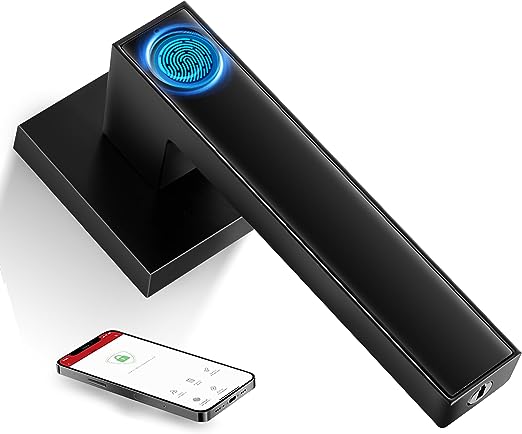
We all forget to grab our keys when heading to the shops sometimes. And we all have trouble unlocking the door while simultaneously carrying a couple of bags and an umbrella. When you also happen to have arthritis, this everyday task can get that much more annoying.
With the installation of a fingerprint lock, you’ll never have to worry about the keys again. All you will have to do is touch your lock and it will open for you. You can also allow your family and friends the option of entering your home without a key. This can prove extremely useful if you ever need them to drop something off while you’re not there or to come in and help you if you’re feeling unwell.
Motion-Activated Lights
The fact that we’re pointing out fall hazards in seniors for the second time is by no means meant to be a slight. It’s just an unwelcome fact of getting older. One of the culprits behind this increase in home accidents and tumbles is seniors’ failing eyesight. If you don’t see the chair leg, how are you expected to avoid it? Add frequent trips to the bathroom in the middle of the night, and there’s your recipe for a broken bone.
Of course, you can install night lights. But you have to remember to turn them on, and what happens if you prefer to sleep in total darkness? Install a motion-activated set of lights, and you’ll ensure you see your surroundings even during the night as you answer nature’s call. Plus, you’ll reduce your electricity bill, which is surely a welcome bonus.
Smart Thermostat
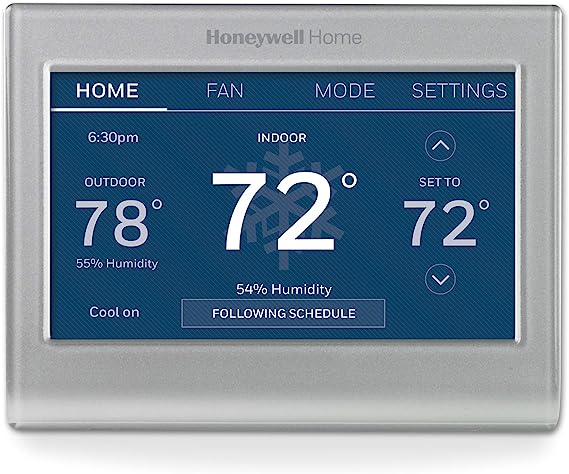
Tinkering with the thermostat can become a pain in the neck as you get older, especially if the dials are fidgety or if you need to make frequent adjustments. But with a smart thermostat that you can connect to a smartphone, you won’t have this issue again. All you’ll need to do is click a couple of buttons, and the temperature will suit your liking.
Some smart thermostats are also very good at making their own adjustments. For example, you can set them to always keep a room at a certain temperature at a specific part of the day. Enjoy a pleasantly toasty or refreshingly cool home at all times.
Smart Pill Dispensers
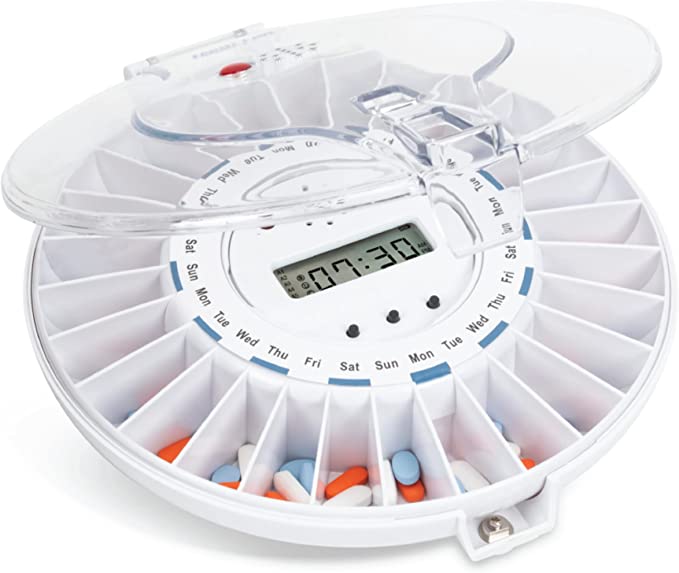
Getting older also involves having to take a fair bit of medication. Even a much younger person wouldn’t be able to keep up with the different med-taking schedules and dosages. Luckily, a simple device like a smart pill dispenser can save you all the trouble.
It will automatically give you the right pill at the right time. Some models can even remind you it’s time to take a certain medicine. This will forever eliminate the risk of forgetting to take an important pill or accidentally taking one that you were only meant to take at a different time. Not to mention, it’s the best way to prevent accidental overdoses.
Don’t start thinking that a device like this signals that you are becoming forgetful. It’s just a precaution. Above all, it’s a handy device that can make life easier if you don’t read too much into it.
Medical Alert System
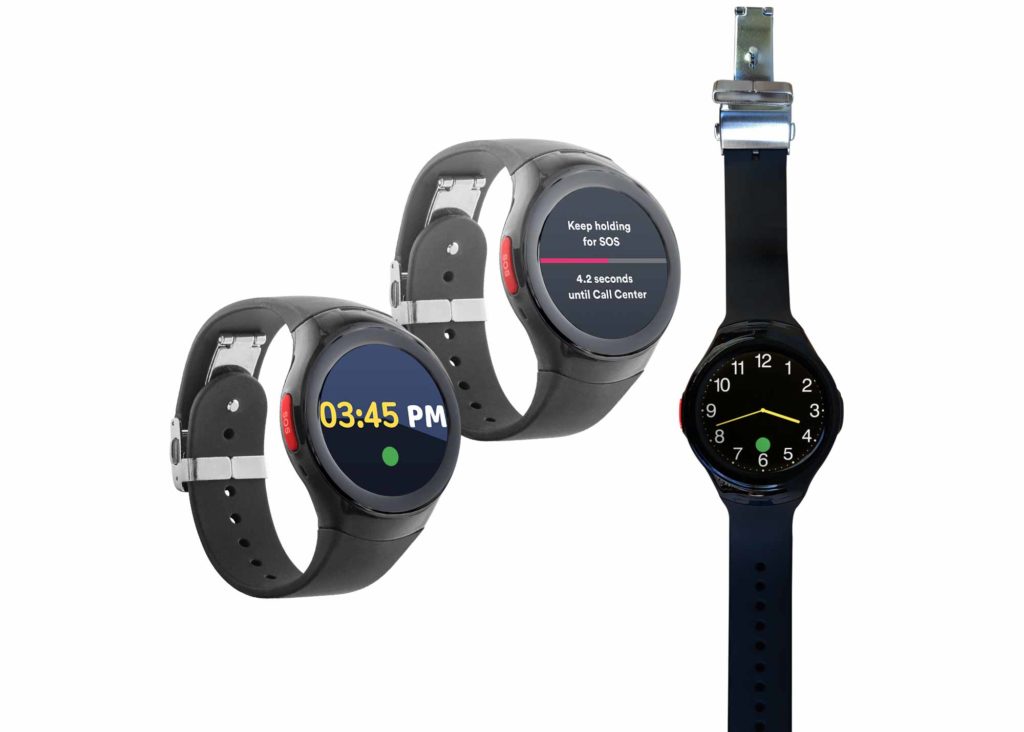
[Bay Alarm Medical SOS Smartwatch w/ built-in Fall Detection]
Medical alert systems, although they sound ominous, are, in fact, devices that can make aging a lot less stressful. They are designed to get you the help you need as quickly as possible, should you take a tumble or simply feel unwell.
Most accidents happen in the home, and seniors are more prone to accidents the older they get. Do your research to see what type of medical alert device would be helpful for you. There are a variety of in-home and on-the-go wearables. A medical alert system can literally be a lifesaver by directing an ambulance or a loved one to your address if you ever happen to slip in the tub.
If you also suffer from a health condition that may take a sudden turn for the worse, you will be able to sleep much more soundly, knowing that help will be available at the touch of a button, should that ever happen. And even if you are perfectly healthy, knowing there is someone watching over you that you can reach with the touch of a button or a loud yell will make you feel much safer.
Key Finder with Tags
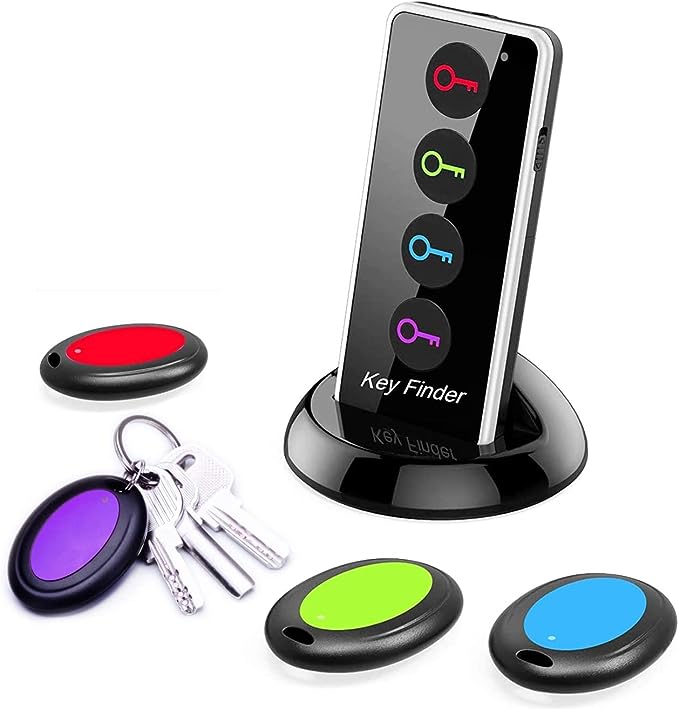
A key finder can be a helpful tool for seniors, providing a simple solution to the common problem of misplaced keys or other items. As seniors may face challenges with memory or mobility, losing keys can be frustrating and even pose safety risks if they are locked out of their homes.
A key finder typically consists of a small tracking device that attaches to the keyring. When keys go missing, seniors can trigger an alert from a connected app (or remote) prompting the key finder to emit a sound or flash a light. This straightforward technology saves time and reduces stress, ensuring that seniors can quickly find their keys and maintain their independence in their day-to-day activities.
Smart Carbon Monoxide Detector & Indoor Air Quality Monitor
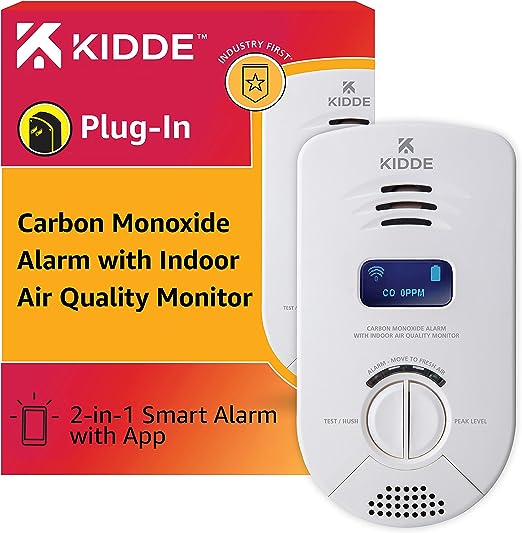
Carbon monoxide (CO) smart devices are of utmost importance for seniors due to their heightened vulnerability to this silent and potentially deadly gas. As seniors may have diminished senses or chronic health conditions, they might not detect the presence of carbon monoxide, which is odorless and colorless. Smart CO detectors are equipped with advanced sensors that continuously monitor air quality and detect dangerous levels of CO in the home.
When CO levels become hazardous, these devices immediately alert both the residents and their caregivers through smartphone notifications or loud alarms. Prompt detection of carbon monoxide allows seniors to evacuate safely and seek medical attention if needed, preventing serious health risks or even fatalities. These smart devices offer peace of mind to both seniors and their families, ensuring a safe and secure living environment for our elderly loved ones.
Ring Video Doorbell
Wondering who is ringing your doorbell when you are busy gardening outside or getting out of the shower? Or perhaps you’d like to keep an eye on your deliveries while you are out of the home? A wired or rechargeable wired doorbell can give you the insight you are looking for.
When connected with an app to your smartphone, you can see in real-time who is ringing your doorbell or dropping off a package. If needed, you can even communicate with the person without ever leaving your favorite chair or car. This means you can see solicitors ring your doorbell and choose whether or not you want to open the door to hear their sales pitch. You can also see when your latest Amazon purchase was delivered or tell a friendly neighbor who is ringing your bell that you’re in the backyard in the garden.
A video doorbell can also be a great security system. You can choose to opt into a subscription that records the video feed from your home for a designated amount of time.
More About Smart Assistants
Smart home assistants, like Google Home or Amazon Alexa, are popular home features nowadays. For active and home-bound seniors alike, these smart devices can provide a bit of security, cognitive stimulation, and even connection to friends. Looking to utilize your smart device in new ways? Here’s a quick list of features you might try adding to your routine.
- Ask for weather updates and the top news stories in the morning while you make your coffee. This is especially great for adults who might have vision issues and no longer read the newspaper.
- Ask for a journaling prompt and write down your thoughts in a journal while you have your morning coffee.
- Ask for a trivia fact or question while you’re making breakfast.
- Ask for math problem questions in the afternoon and work your brain to figure them out.
- Set a timer for 20 minutes and use that time to work on a creative task, like writing, painting, crocheting, or anything else that suits your preferences. Don’t look at your phone or television while working for those 20 minutes.
- Set a routine in your smart device app so that when you say keywords, certain smart devices respond. For example, set your Alexa app to a routine that turns on your living room lights when you say “good morning” and shuts them off when you say “good night.”
- Set alarms daily for reminders to take certain medications. Add in voice prompts so that you know which meds to take or at what doses.
- Feeling stressed? Ask for a timer to be set for 3-7 minutes, sit down, and focus on your breathing.
- Feeling energized? Ask for your favorite song to be played so that you can dance, sway, or reminisce.
A subscription service from Amazon, called Alexa Together, is designed to connect family members with their older loved ones through their devices. A subscription comes with multiple features the family can use, including the opportunity to “drop in” from one device to another, which can make checking in on an older loved one even easier than a phone call.
Final Thoughts
All of these devices can help you enjoy your senior years more, keeping you safe and easing your mind. After all, we’re all aware of the fact that our health will start to fail as we get older. So, it’s merely a question of adjusting to the changes as best we can, as opposed to living in denial.
Haley Burress – Writer, Senior Health Expert
Haley is a freelance writer specializing in senior health, caregiver support, and other topics relevant to older adults and aging. For more than 15 years, she had the honor of working in various senior living communities serving residents, families, and professional caregivers in local and national leadership roles. She uses that experience and those opportunities as she writes reliable, relatable, and realistic information that is designed to both educate and empower.
Over the past decade, Haley has had the opportunity to write informational resources, including extensive caregiver curriculum and training, for small and large senior service organizations. Her readers expect her to break down the sometimes overwhelming and frustrating information that comes with navigating senior living research, Medicare, and other social-emotional health topics.
When she isn’t writing at her desk (or at a corner table at her favorite coffee shop), Haley is usually walking her dog Junie around the neighborhood, exploring a new trail with her husband and teenage son, or sweating out stress on her Peloton bike. Just like other writers, Haley almost always has her nose in a book.
She takes her role as a senior living and caregiver expert seriously! You can find her elsewhere on the internet, such as her website or LinkedIn.
